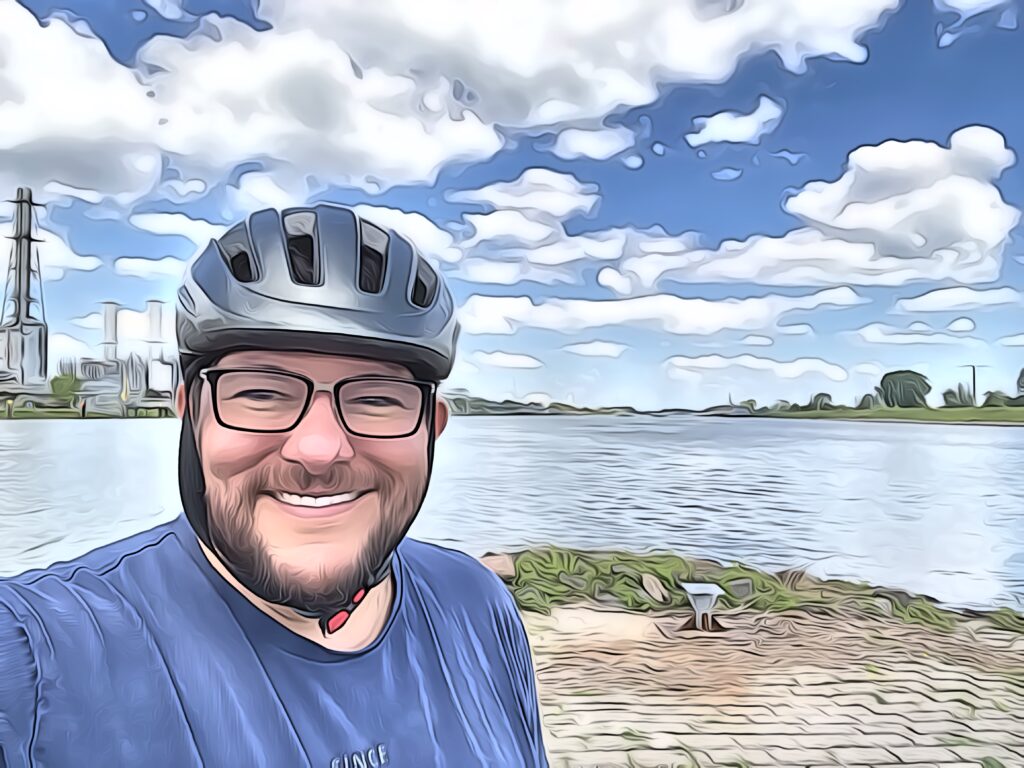The year 2025 greets us with its own set of challenges, reminding us once again of life’s unpredictability. Crises, whether personal, professional, or global, are inevitable, but within these turbulent moments lies an opportunity to grow. The key to navigating these periods of upheaval is resilience — the ability to adapt, recover, and thrive despite adversity. Resilience isn’t a static trait; it is a skill that can be nurtured and strengthened.
Understanding Resilience as a Dynamic Skill

Resilience is often misunderstood as an inherent quality that some possess while others lack. However, research and lived experiences illustrate that resilience is a dynamic process. It involves cultivating a mindset that sees crises not merely as obstacles but as catalysts for transformation.
Take inspiration from Hildegard, a spirited woman who faced physical challenges with unwavering optimism. Visit the blog article: Encounters of the third art. Despite losing mobility and her beloved dog, she found joy in her daily walks with a rolling walker, declaring it “the best invention ever.” Her attitude exemplifies a profound truth: we can’t control every external event, but we can decide how to respond to them.
The Phases of Resilience
Drawing from systemic psychological coaching and Erich’s Phase Model, resilience unfolds in phases that align with the natural rhythm of life. Recognizing these phases can help us navigate crises with clarity and purpose:
- Deep Understanding: Acknowledge the situation fully, even if it’s uncomfortable. This initial step requires deep self-reflection and honesty, which can be challenging but essential for clarity. It involves examining not just the surface symptoms of a crisis but also the underlying patterns or root causes. For instance, a health scare may reflect lifestyle habits needing change, or a career setback might reveal areas for skill enhancement or personal growth. By confronting the reality of the situation head-on, we gain the insight needed to devise meaningful solutions and begin the journey toward resolution. This phase, though difficult, sets the foundation for all subsequent steps, allowing individuals to transform crises into opportunities for development.
- Internalization and Acceptance: Accept the reality of the situation and forgive yourself for past mistakes. This compassionate self-acceptance lays the groundwork for genuine change. As Nathaniel Branden highlighted in his seminal work, „The Six Pillars of Self-Esteem,“ self-acceptance isn’t about condoning past errors but recognizing them as part of your journey. It involves embracing the full spectrum of your experiences — the good, the bad, and the transformative — and understanding that each mistake has contributed to your growth. Internalization is vital because it anchors these realizations deeply into your mindset, allowing them to influence future actions positively. When internalized, self-acceptance moves beyond intellectual acknowledgment and transforms into a lived truth, creating an enduring foundation of inner peace. This profound process ensures individuals not only forgive themselves but also harness these experiences as a source of strength and wisdom, empowering them to move forward with clarity and conviction.
- Action and Adaptation: Once acceptance is achieved, action becomes the next essential step. Quick wins — small, tangible successes — can provide the momentum needed to sustain motivation. For instance, focusing on manageable goals, like adopting a healthier routine or reducing work stress incrementally, can generate powerful positive feedback. However, action must be paired with flexibility to avoid falling into paralysis through analysis. Overthinking can delay progress, whereas taking imperfect but meaningful steps can unlock insights and new opportunities. Equally important is adaptation when initial actions do not yield the expected results. This requires evaluating outcomes with an open mind and making informed adjustments. As highlighted in „Deep Personal Change – Part 3 – The Inner Fight Continues“ by Erich, adaptation ensures resilience in the face of setbacks, enabling progress to be maintained and objectives recalibrated as needed. Together, action and adaptation form a dynamic duo, ensuring sustained growth and transformation even in unpredictable circumstances.
- Continuous Learning: The journey doesn’t end with initial successes. Resilience requires ongoing education and adaptation, which are cornerstones of sustained growth. Continuous learning involves actively seeking out new strategies, staying informed about the latest developments, and engaging with trusted mentors and coaches for guidance. As highlighted in „Deep Personal Change – Part 3 – The Inner Fight Continues“ , continuous learning helps individuals refine their approaches, adapt to evolving circumstances, and avoid stagnation. This process not only maintains momentum but also enhances decision-making and problem-solving skills. By committing to lifelong learning, individuals build a robust framework for resilience, ensuring they remain adaptable and proactive in the face of future challenges. Continuous learning transforms setbacks into opportunities for growth and innovation, reaffirming the importance of staying curious and open to new perspectives.

Practical Tools for Building Resilience
- Self-Affirmation: Writing about your core values can increase your ability to internalize difficult messages and make meaningful changes. A study titled „Self-affirmation alters the brain’s response to health messages and subsequent behavior change,“ authored by Emily B. Falk, Matthew Brook O’Donnell, Christopher N. Cascio, Francis Tinney, Yoona Kang, Matthew D. Lieberman, Shelley E. Taylor, Lawrence An, Kenneth Resnicow, and Victor J. Strecher, highlights how affirming core values activates the ventromedial prefrontal cortex (VMPFC), a brain region associated with self-related processing and positive valuation. This neural activation allows individuals to view challenging health messages as self-relevant, increasing their openness to behavior change. For example, participants in the study demonstrated increased physical activity following self-affirmation exercises, showcasing its transformative potential during crises. For further details, visit the study at PMC Article.
Furthermore, the study found that the effects of self-affirmation were not merely fleeting but had measurable impacts on behavior over time. By focusing on their core values, individuals could navigate otherwise threatening messages with clarity and purpose, offering a powerful tool for fostering resilience in the face of adversity. - Mindful Goal-Setting: Set clear, prioritized objectives. This approach involves identifying what truly matters and aligning your actions accordingly. Letting go of distractions and non-essential tasks can sharpen your focus and free up energy for meaningful progress. Erich’s Phase Model emphasizes the importance of simplicity, as narrowing your focus amplifies your ability to achieve impactful results. For instance, instead of tackling numerous projects at once, concentrate on a few high-priority goals to create momentum and clarity.
- MACARENA Mental Training: This self-talk method encourages creating personalized mantras that affirm your ability to overcome obstacles. The acronym MACARENA stands for a structured mental training approach designed to help individuals build resilience by developing their unique internal dialogue. By regularly practicing this technique, individuals can cultivate self-belief and maintain focus on long-term goals. In „Deep Personal Change – Part 2 – The Inner Fight Starts“ and „Deep Personal Change – Part 3 – The Inner Fight Continues“ I highlight how repetitive self-affirmations embedded within a rhythmic structure can create new neural pathways, fostering a proactive mindset. Moreover, this method has proven effective in sports psychology and personal development coaching to strengthen mental strength.
- Community and Connection: Resilience thrives in the context of supportive relationships. Lean on your community — whether friends, family, or professional networks — for strength and perspective. Several studies and author Brad Stulberg (Master of Change, The practice of groundedness and Peak Performance and others) highlight how collective activities, such as group exercise or shared spiritual practices, can significantly reduce stress and enhance emotional well-being. For instance, engaging in synchronized activities like group fitness classes or community rituals can foster a sense of belonging, which strengthens our ability to face crises. Connection with others not only provides practical support but also reinforces the emotional foundation needed for resilience.
Resilience Is a Lifelong Journey
In the midst of crises, it is easy to lose sight of life’s cyclical nature. Difficult phases may feel interminable, but as Erich’s Phase Model reminds us, every phase is temporary and has a definitive ending. Moreover, each phase exists for a reason, serving as a stepping stone in our journey of personal growth. This profound understanding offers more than just hope; it underscores the certainty that even the hardest periods are not permanent and are meant to teach us valuable lessons. Recognizing the transient nature of phases helps us persevere, knowing that time will eventually bring resolution. Furthermore, it encourages us to harness the momentum of positive phases to build resilience and prepare for future challenges. This cyclical perspective reinforces the idea that every phase, whether difficult or prosperous, not only ends but also fulfills a unique purpose in shaping who we are.
Resilience isn’t about avoiding hardship; it’s about thriving because of it. By embracing the process of understanding, acceptance, action, and learning, we transform adversity into an opportunity for growth. Remember, every crisis is a turning point, and with resilience, we can steer toward a brighter horizon. Embrace each challenge as a chance to unlock new strengths and perspectives, knowing that within every struggle lies the seed of transformation and growth.
As we face the uncertainties of 2025 and beyond, let us build resilience together. At The Evolving Zone, we are committed to guiding you through life’s phases, equipping you with the tools to not just endure but to thrive. Embrace the journey with courage, and remember: resilience is your superpower.

Erich is an experienced life + business coach. He has a track record of over 21 years in supporting staff and leadership in organizations, athletes, and private people in their efforts to enable changes in their lives.
He knows from his own experience how to ignite the passion in people, how to let people gain new perspectives, set new objectives, and follow through completion.
As a native speaker, Erich provides coaching in German and Spanish, as well as in English thanks to his more than 3 decades of experience working at the international level.
Last posts

Eine Antwort zu “Resilience – A Tool to Transform Adversity into Growth”
[…] the process of resilience-building, which I explored in „Resilience – A Tool to Transform Adversity into Growth„. Adversity is not meaningless—it is a training ground for growth. The challenges we face […]